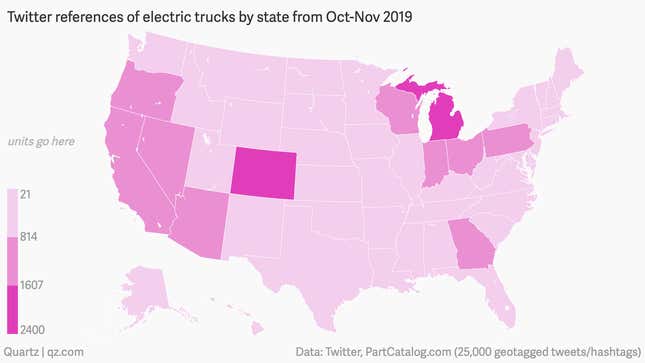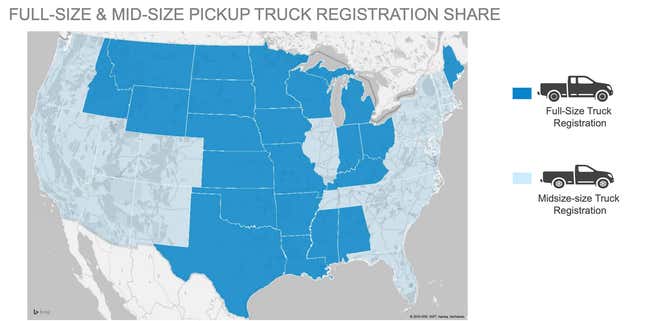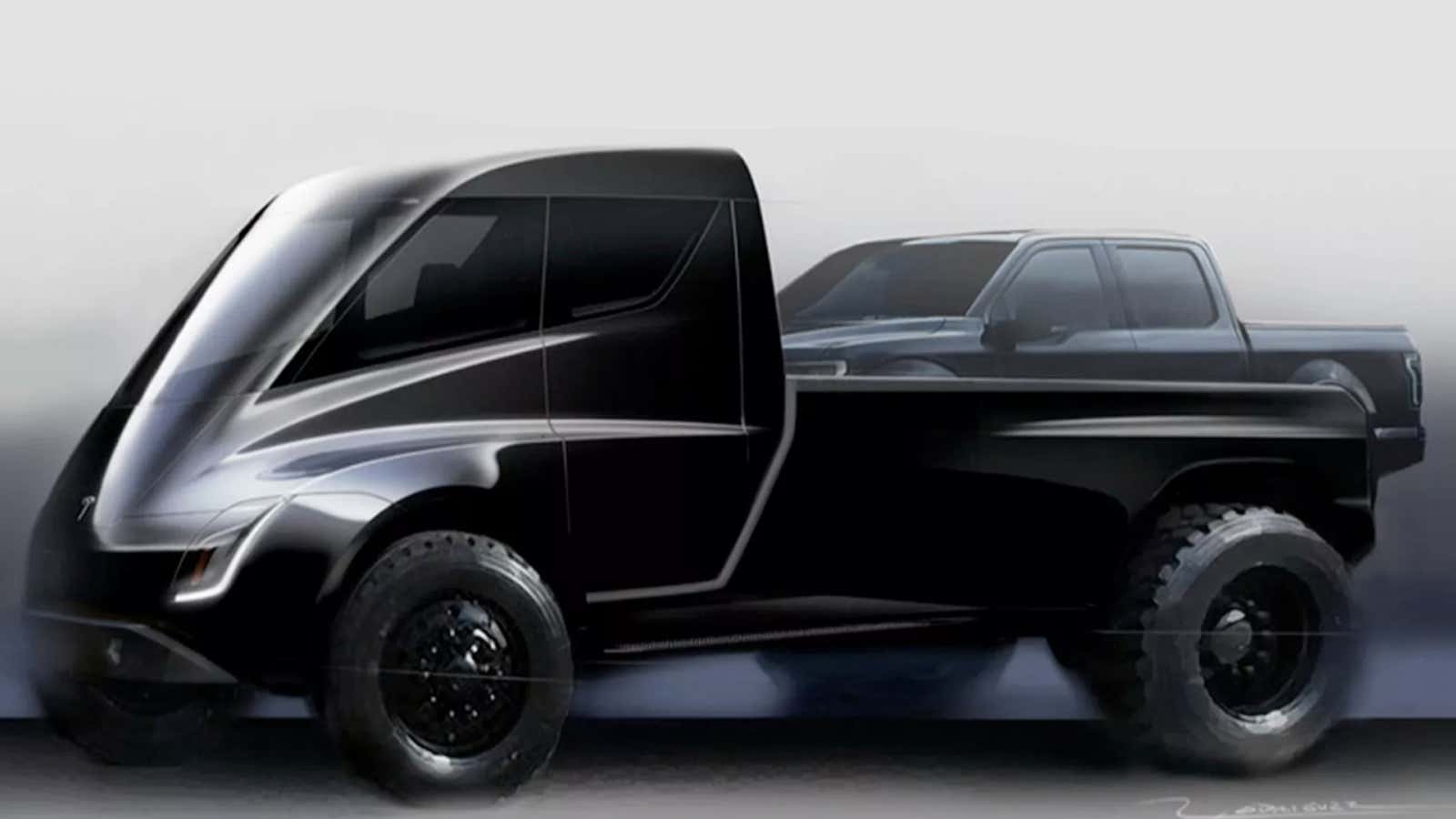Car culture in the middle of America means pickup trucks. While a luxury vehicle on the coasts implies an Audi or BMW, in states like Nebraska, Arkansas, Montana, and Texas, it’s more likely to mean a fully-loaded Chevy Silverado capable of hauling 35,500 lbs. As even pedestrian pickups’ median price has soared from $32,557 in 2010 to $45,260 in the first half of 2019, according to the research firm J.D. Power and Associates, the high end keeps going up. Chevy’s new High Country trim package for the Silverado will set you back $100,000.
Tesla wants to tap into this vehicle category, America’s most profitable. The company’s new pickup is due out tonight (Nov. 21), and it’s billed as big, fast, and “crazy” powerful by CEO Elon Musk.
It might seem an odd fit for modern cowboy culture. Electric cars are not associated with cattle drivers and construction sites. But that misses the real appeal of such vehicles.
Every year, automotive research and consulting firm Strategic Vision asks 250,000 people why they buy cars. Private truck owners, almost 90% male (pdf), are as image conscious as an Instagram influencer. When it comes to using pickups for their intended purpose, 75% of non-business truck owners say they never drive off-road or tow loads, or do so just once per year. “The ability to outperform others, to look good while driving, to present a tough image, to have their car act as an extension of their personality, and to stand out in a crowd,” are the top attributes sought out by truck buyers, Strategic Vision’s president Alexander Edwards told The Drive.
To gauge interest, auto-parts seller PartCatalog analyzed over 25,000 geotagged tweets referencing electric trucks during four weeks between October and November. It found most interest was concentrated in Colorado, Michigan, and Illinois, and to a lesser degree in California and Washington, and Georgia.

But Twitter is not the country. How well does that map to today’s share of pickup vehicle registration in America? IHS/Markit data between 2017-2018 show most full-size pickups are registered in the Midwest (where as much as a quarter of vehicles registered are pickups) and the Deep South. A smaller share of midsize trucks are registered along the coasts, according to an analysis by Cox Automotive (pdf). That doesn’t quite map with the public buzz about Tesla’s newest arrival, with the exception of the Great Lakes region.

Here the divergence is clearer, and perhaps more political. Environmental concerns, particularly climate change, rank low among voters’ priorities across the Midwest relative to the rest of America. That’s reflected in buying habits as well. While about 25% of new vehicle owners nationwide rank fuel economy a top priority, only 8% of truck buyers feel the same way, and even fewer are willing to pay more for it.
Perhaps that’s why Musk is touting its performance, not its green bonafides. “The Tesla Truck will have dual motor all-wheel drive w crazy torque & a suspension that dynamically adjusts for load,” Musk tweeted last year, promising all-day power for heavy tools. And of course, it will be a big truck.
